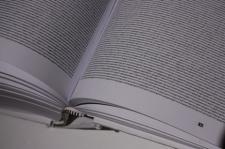In the Fight for Our Genes, Could We Lose What Makes Us Human?
By Ziyaad Bhorat,
openDemocracy
| 08. 17. 2016
Untitled Document
In the last 70 years we’ve come a long way towards unraveling the building blocks of human life. The human genome has been identified, sequenced, mapped, decoded, and interfered with. We’ve used this knowledge to clone Dolly the sheep, discover breast cancer-causing genes and create stem cells from our own skin. And now we stand on an exciting precipice: perfecting technologies that allow us to edit our genes with precision.
But as we embark further on the gene revolution and allow corporations and governments to deconstruct human beings down to their most basic parts, we have to question whether we may lose not just some of those parts in the process but something much greater and more important—what it means to be truly human.
Let’s start with the technology. At the 2016 World Economic Forum in Davos, a panel called Humankind and the Machine brought together leading experts in technology, governance, and bioethics to discuss new technologies that are sure to have a major impact on humanity: artificial intelligence, cyber-security, genetics, and space colonization.
When questioned...
Related Articles
By Arthur Lazarus, MedPage Today | 01.23.2026
A growing body of contemporary research and reporting exposes how old ideas can find new life when repurposed within modern systems of medicine, technology, and public policy. Over the last decade, several trends have converged:
- The rise of polygenic scoring...
By Stephanie Pappas, LiveScience | 01.15.2026
Genetic variants believed to cause blindness in nearly everyone who carries them actually lead to vision loss less than 30% of the time, new research finds.
The study challenges the concept of Mendelian diseases, or diseases and disorders attributed to...
By David Cox, Wired | 01.05.2026
As he addressed an audience of virologists from China, Australia, and Singapore at October’s Pandemic Research Alliance Symposium, Wei Zhao introduced an eye-catching idea.
The gene-editing technology Crispr is best known for delivering groundbreaking new therapies for rare diseases, tweaking...
By Josie Ensor, The Times | 12.09.2025
A fertility start-up that promises to screen embryos to give would-be parents their “best baby” has come under fire for a “misuse of science”.
Nucleus Genomics describes its mission as “IVF for genetic optimisation”, offering advanced embryo testing that allows...




